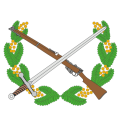Introduction
Leadership excellence is essential to the profession of arms, and the Australian Army has a well-deserved reputation for producing leaders, at all ranks, who are capable in any environment. However, nothing good stays that way without being nurtured, and this means being self-critical and forward-thinking about our approach to leadership as our culture and operating environments evolve.
The Chief of Army has appointed the Commandant of the Royal Military College of Australia as Director General Army Leadership, with responsibility to implement the Australian Army Leadership Programme (AALP) through the Centre for Australian Army Leadership (CAAL).
Leadership is owned by all ranks within Army, and this reading list is intended to support Army’s individual professional development, generate conversation and contribute to the ‘contest of ideas’ through the lens of leadership, character and ethics.
It emphasises:
- Lead Self – know yourself to grow yourself;
- Understand Leadership – applying the right leadership style to your situation;
- Understand Teams – building resilient, agile and adaptable teams; and
- Leadership in Action – leadership excellence in case studies and biographies.
It includes crowdsourced recommendations and will be continuously revised, so send us your recommendation. If you are interested in writing a book review for the CAAL’s Leadership Quarterly, contact us via email and we will send you a book from this reading list for free! Contact us at centreforaustralianarmyleadership-caal@dpe.protected.mil.au.
Many of the books listed are available through the Defence Library and Information Service (DL&IS) so that this in-depth library of enduring leadership study is available to all.
Leadership
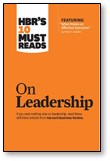
Harvard Business Review 10 Must Reads – On Leadership
HBR's 10 Must Reads focuses on the core topics that every ambitious manager needs to know: leadership, strategy, change, managing people, and managing yourself.
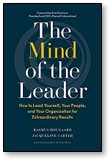
The Mind of The Leader: How to Lead Yourself, Your People, And Your Organisation for Extraordinary Results by Rasmus Hougaard and Jacqueline Carter
Most leaders think they're effective at motivating their employees, but study after study shows that employees are more disengaged and uninspired than ever. The solution lies in looking within- into the mind of the leader. Three qualities stand out as being foundational for leaders: mindfulness, selflessness, and compassion.
Perspective: understand self before you can lead self.
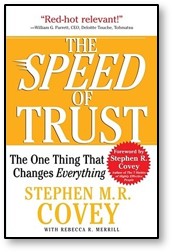
The Speed of Trust: The One Thing that Changes Everything by Stephen M.R. Covey
Covey argues that trust is the very basis of the new global economy and shows how trust, and the speed at which it is established, is the essential ingredient for any high performance, successful organisation. In the military context, trust enables mission command.
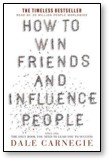
How to Win Friends & Influence People by Dale Carnegie
Since it was first published in 1936, this classic has helped millions of readers get along with people. It provides advice on: discovering new ambitions, making friends quickly and easily, increasing your influence and popularity, handling complaints and avoiding arguments. It is the ‘grandfather’ of all leadership books and inspired many others in the field.
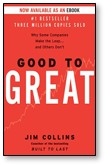
Good to Great: Why Some Companies Make the Leap... And Others Don't by James C. Collins
‘Good to Great’ happens very rarely and it is very difficult. In his research, Jim Collins lays out a framework for the systematic phases which any great company goes through.
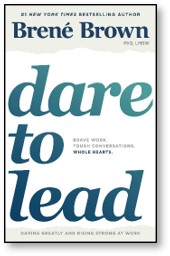
Dare to Lead by Brene Brown
Leadership is not about titles, status, and wielding power. A leader is anyone who takes responsibility for recognising the potential in people and ideas, and has the courage to develop that potential. When we dare to lead, we don’t pretend to have the right answers; we stay curious and ask the right questions. We don’t see power as finite and hoard it; we know that power becomes infinite when we share it with others. We don’t avoid difficult conversations and situations; we lean into vulnerability when it’s necessary to do good work. This book challenges some of the norms of military leadership and will improve how you understand others.
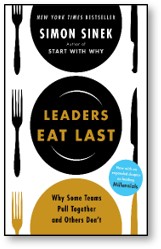
Leaders Eat Last by Simon Sinek
Too many workplaces are driven by cynicism, paranoia, and self-interest. But the best ones foster trust and cooperation because their leaders build what Sinek calls a ‘Circle of Safety’ that separates the security inside the team from the challenges outside. Great leaders sacrifice their own comfort- even their own survival- for the good of those in their care. Possibly even better than Sinek’s other book Start with Why.
Intro: https://youtu.be/ReRcHdeUG9Y

Lean In: Women, Work, and the Will to Lead by Sheryl Sandberg and Nell Scovell
Sheryl Sandberg – Facebook Chief Operating Officer and one of Fortune magazine's Most Powerful Women in Business – draws on her experience working in some of the world's most successful businesses and looks at what women can do to make the small changes in their life that can effect change on a more universal scale.

Becoming by Michelle Obama
The former First Lady of the United States’ autobiography focuses on the humanity of leadership, the centrality of personal convictions and inspiring others. She empowers young women to stand up, speak for what they believe in and persist. She explicitly encourages leadership from all levels to make change within communities.

How Remarkable Women Lead: The Breakthrough Model for Work and Life by Joanna Barsh and Susie Cranston
Both McKinsey & Company consultants, the authors ask whether feminine leadership traits (employed by both women and men) are better suited for our fast-changing, hyper-competitive, and increasingly complex world (Accelerated Warfare). They establish the links between joy, happiness, and distinctive performance with their model of ‘Centred Leadership’.
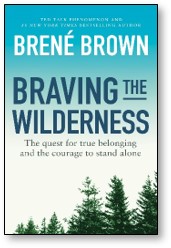
Braving the Wilderness by Brene Brown
“True belonging doesn't require us to change who we are. It requires us to be who we are.” Social scientist Brene Brown has sparked a global conversation about the experiences that bring meaning to our lives- experiences of courage, vulnerability, love, belonging, shame and empathy. In Braving the Wilderness, she redefines what it means to truly belong in an age of increased polarisation.
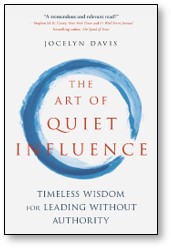
The Art of Quiet Influence by Jocelyn Davis
Centered around three influence practices: invite participation, share power and aid progress; Davis draws on the enduring wisdom of the Buddha, Confucius, Rumi, Gandhi and others. The Art of Quiet Influence shows anyone, not just bosses, how to use influence without authority, to get things done at work and in life and become a "mainspring" (an unobtrusive yet powerful influencer).

The New One Minute Manager by Kenneth Blanchard
This short read recounts three techniques to be an effective manager: one-minute goals, one-minute praise and one-minute reprimands. Each of these only takes a minute but has lasting benefit for you and your team.
Additional Reading: Leadership & The One Minute Manager by Kenneth Blanchard Drea Zigarmi and Patricia Zigarmi.

Thrive: The Third Metric to Redefining Success and Creating a Life of Well-Being, Wisdom, and Wonder by Arianna Huffington
The chair, president, and editor-in-chief of the Huffington Post Media Group writes that our relentless pursuit of the two traditional metrics of success- money and power- has led to an epidemic of burnout and stress-related illnesses. A third metric for defining success must be our well-being and our capacity for compassion and giving.
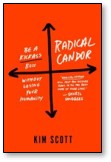
Radical Candour: Be a Kickass Boss Without Losing Your Humanity by Kim Malone Scott
Having worked for Google and Apple, Scott describes how setting the expectation of honest communication and contributory dissent can be used to get better results from your team.
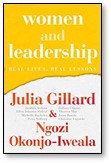
Women and Leadership: Real Lives, Real Lessons by Ngozi Okonjo-Iweala and Julia Gillard
From their broad experience on the world stage in politics, economics and global not-for-profits, Ngozi Okonjo-Iweala and Julia Gillard have some strong ideas about the impact of gender on the treatment of leaders. Women and Leadership takes a consistent and comprehensive approach to teasing out what is different for women leaders.

Originals: How Non-Conformists Move the World by Adam Grant
You can improve the world by being original: choosing to champion novel ideas and values that go against the grain, battling conformity, and bucking outdated traditions. Grant explores how to recognise a good idea, speak up without getting silenced, build a coalition of allies, choose the right time to act, manage fear and doubt; and build team cultures that welcome contributory dissent.
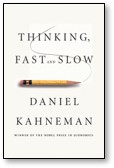
Thinking Fast and Slow by Daniel Kahneman
Writes OCDT Pascal Price: Kahneman explains the two systems at play within our brains: System 1 - our “thinking fast” response for simple questions (intuitive and emotional), and System 2- our “thinking slow” response for complex problems (deliberative and logical). He discusses the decision-making process and its influences, as well as cognitive biases. If a leader can understand these things, they can better understand themselves and exert influence over others to achieve their goals.

Give and Take: A Revolutionary Approach to Success by Adam Grant
Effective networking, collaboration, influence, negotiation, and leadership skills all depend on how we interact with others. At work, most people operate as either ‘takers’, ‘matchers’, or ‘givers’. Takers strive to get as much as possible from others and matchers aim to trade evenly, but givers are the rare breed of people who contribute to others without expecting anything in return.
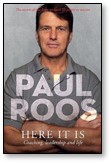
Here It Is: Coaching, Leadership and Life by Paul Roos
A first-rate player, premiership-winning coach and in-demand commentator, Roos shares the 25 key points of his coaching and leadership philosophy which led the Sydney Swans to their historic drought-breaking premiership and rebuilt the Melbourne Demons.
Perspective: authentic leadership.

Legacy: What the All Blacks Can Teach Us About the Business of Life by James Kerr
Kerr deep-dives the world’s most successful sporting team, the legendary All Blacks of New Zealand, to reveal 15 powerful and practical lessons for leadership and business. Leaders are responsible for building the culture of their team, and this book speaks to endurance, purpose and leading distributed teams in remote locations.
Perspective: authentic leadership.
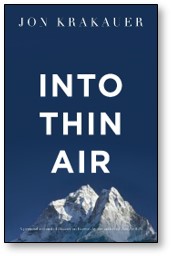
Into Thin Air: A Personal Account of the Mount Everest Disaster by Jon Krakauer
This is the true story of a 24-hour period on Everest, when members of three separate expeditions were caught in a storm and faced a battle against hurricane-force winds, exposure, and the effects of altitude, which ended in the worst single-season death toll in the peak's history. Krakauer discusses the effect extreme goal focus has on decision making in adverse environments, including disregarding pre-defined exit criteria in extreme risk scenarios.
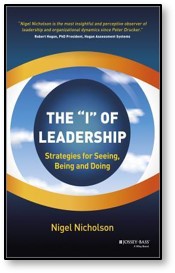
The "i" of Leadership: Strategies for Seeing, Being and Doing by Nigel Nicholson
Leaders see what others do not which allows them to transform, build, destroy, or stabilise teams. Leaders fail through lack of insight - into themselves and into the world. Leaders covered in the book include: George Bush, Tony Blair, George S Patton, Warren Buffet, Steve Jobs, Josef Stalin, Hannibal, Elizabeth I, and Nelson Mandela, among others.

The Success Principles: How to Get from Where You Are to Where You Want to Be by Jack Canfield and Janet Switzer
The Success Principles will teach you how to increase your confidence, tackle daily challenges, live with passion and purpose, and realise all your ambitions. Not merely a collection of good ideas, this book spells out the 64 timeless principles used by successful men and women throughout history. This book will help improve your ability to ‘lead self’.

The Education of an Idealist: A Memoir by Samantha Power
After serving for four years as President Obama’s human rights adviser, in 2013 Power became the youngest American to become US Ambassador to the United Nations. The Education of an Idealist lays bare the battles and defining moments of her life and shows how she juggled the demands of a 24/7 national security job with the challenge of raising two young children. Along the way, she illuminates the intricacies of politics and geopolitics, reminding why we each have the opportunity to advance the cause of human dignity.
The best leadership memoir we’ve read in years.

The 21 Irrefutable Laws of Leadership: Follow Them and People Will Follow You by John C. Maxwell
Maxwell distils everything he has learned from his 30+ years of leadership successes and mistakes with observations from the worlds of business, politics, sports, religion, and military conflict.
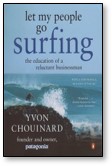
Let My People Go Surfing: The Education of a Reluctant Businessman by Yvon Chouinard
Yvon Chouinard is a legendary climber, businessman, environmentalist, and founder of Patagonia, Inc. In his long-awaited memoir, he shares the persistence and courage that have gone into being head of one of the most respected and environmentally responsible companies on earth. The military is simply the context in which we need to apply the tools we have, and our understanding of humanity and how people think.

Elders: Wisdom from Australia's Indigenous Leaders by Peter McConchie
This book chronicles the wisdom of Indigenous peoples and their traditional and contemporary ways of living. A series of chapters authored by tribal elders from various parts of Australia is supplemented by the author's stunning photography.
Military Leadership
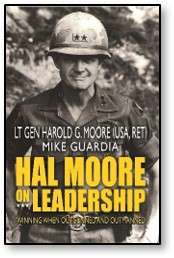
On Leadership: Winning When Outgunned and Outmanned by Hal Moore
Hal Moore was a Vietnam war hero renowned for his actions during the Battle of La Drang. The battle was made famous by the book We Were Soldiers Once ... and Young which was later made into the 2002 Hollywood film starring Mel Gibson. On Leadership offers a comprehensive guide to the principles that helped shape Moore's success both on-and-off the battlefield.
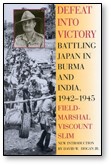
Defeat into Victory: Battling Japan in Burma and India, 1942-1945 by Viscount William Joseph Slim
Slim led shattered British forces from Burma to India in one of the (once) lesser known but more nightmarish retreats of World War II. He then restored his army's fighting capabilities and morale with virtually no support from home and counterattacked. His army's attack on Japanese troops ultimately liberated India and Burma.
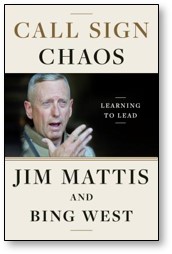
Call-sign Chaos: Learning to Lead by Jim Mattis and Bing West
Mattis divides his book into three parts: Direct Leadership, Executive Leadership, and Strategic Leadership, both in combat and in peacetime. Call Sign Chaos is a memoir of a life of warfighting and lifelong learning, following along as Mattis rises from Marine recruit to four-star general. It highlights that leadership is a team effort, and that the team can never stop learning.
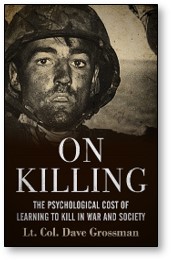
On Killing: The Psychological Cost of Learning to Kill in War and Society by LtCol Dave Grossman
Most soldiers are loathe to kill, but armies have developed sophisticated ways of overcoming this instinctive aversion. Contemporary civilian society, particularly the media, replicates the army's conditioning techniques, and is responsible for our rising rate of murder among the young. A landmark study of the techniques the military uses to overcome the powerful reluctance to kill, of how killing affects soldiers, and of the societal implications of escalating violence.
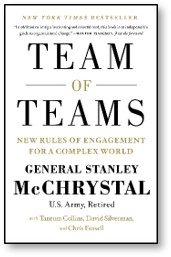
Team of Teams: New Rules of Engagement for a Complex World by Stanley McChrystal
McChrystal and his colleagues discarded a century of conventional wisdom to create a 'team of teams' that combined extremely transparent communication with decentralised decision-making authority. Faster, flatter and more flexible, his task force beat back al-Qaeda. Through compelling examples, the authors demonstrate that the 'team of teams' strategy has worked everywhere from hospital emergency rooms to NASA and has the potential to transform organisations.
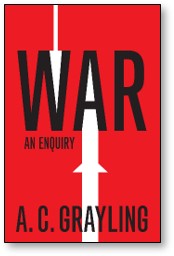
War: An Enquiry by A.C. Grayling
Grayling proposes that a deeper, more accurate understanding of war may enable us to reduce its frequency, mitigate its horrors, and lessen the burden of its consequences. He explores the long, tragic history of war and how warfare has changed in response to technological advances. He interrogates theories about the causes of war and considers positive changes that may result from war.
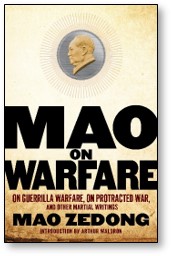
On Guerrilla Warfare by Mao Zedong &
On Protracted War by Mao Zedong
Articulates the case for the extensive use of irregular warfare in which small groups of combatants use mobile military tactics like ambushes and raids to combat a larger and less mobile formal army. Mao calls for a protracted people's war as a means for small revolutionary groups to fight the power of the state.
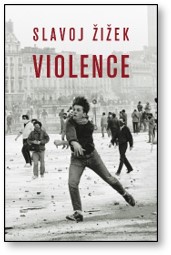
Violence: Six Sideways Reflections by Slavoj Žižek
Žižek examines the ways we perceive and misperceive violence. He brings new light to the Paris riots of 2005; he questions the permissiveness of violence in philanthropy; in daring terms, he reflects on the powerful image and determination of contemporary terrorists. Violence takes three forms: subjective (crime, terror), objective (racism, hate-speech, discrimination), and systemic (the catastrophic effects of economic and political systems). Often one form of violence blunts our ability to see the others, raising complicated questions.
Intro: https://youtu.be/_x0eyNkNpL0
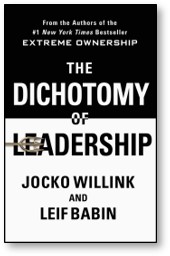
The Dichotomy of Leadership: Balancing the Challenges of Extreme Ownership to Lead and Win by Jocko Willink and Leif Babin
Willink and Babin reveal how the use of opposing principles- leading while following, focusing and detaching, being aggressive yet prudent- will heighten your awareness, deepen your understanding, improve your dexterity, and hone your ability to lead and win.

Eichmann in Jerusalem: A Report on the Banality of Evil by Hannah Arendt
Adolf Eichmann was one of the major holocaust organisers, tasked with facilitating and managing the logistics involved in the mass deportations of Jews to ghettos and extermination camps. Mossad captured Eichmann in Argentina in 1960, and he was put on trial. Reporting on the trial, Arendt observes Eichmann as a normal person and discredits the idea that the Nazi’s were psychopathic, leading to the conclusion of the “the banality of evil”.
Additional reading: Four pfennige per track km by Thomas Laqueur
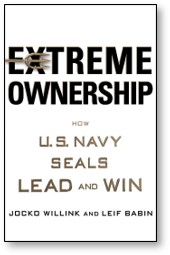
Extreme Ownership: How U.S. Navy SEALs Lead and Win by Jocko Willink and Leif Babin
Willink and Babin explain the SEAL leadership concepts crucial to accomplishing the most difficult missions in combat and how to apply them to any group, team, or organisation. It provides the reader with their formula for success: the mindset and guiding principles that enable SEAL combat units to achieve extraordinary results.
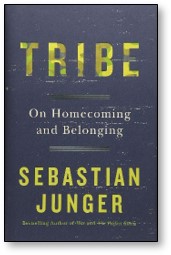
Tribe: On Homecoming and Belonging by Sebastian Junger
A look at post-traumatic stress disorder and the challenges veterans face returning to society. Using his background in anthropology, Sebastian Junger argues that the problem lies not with veterans or with the trauma they’ve suffered, but with the society to which they are trying to return.
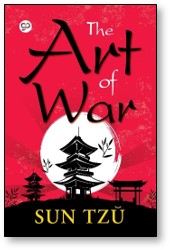
The Art of War by Sun Tzu
A military treatise written during the 5th century BC, the Art of War covers 13 chapters devoted to aspects of warfare and how it applies to military strategy and tactics. The book contains a detailed explanation and analysis of the Chinese military, from weapons and strategy to rank and discipline, and stresses the importance of intelligence operatives and espionage to the war effort.

Leading from the Front: No-Excuse Leadership Tactics for Women by Angie Morgan and Courtney Lynch
Drawing on their years as Marine Corps officers and successful private consultants, Morgan and Lynch deliver 10 practices key to becoming a powerful leader. You'll improve your decision making, focus, and performance as you learn to set an inspiring example, think fast on your feet, stop making excuses, take care of your team, respond without overreacting and stay cool.
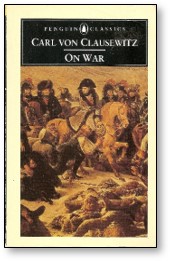
On War by Carl Von Clausewitz
Described as both a realist and a romantic, Clausewitz argued that war could not simply be reduced to the logistics on the ground but rather called for rapid decision making by alert commanders responding to unexpected developments unfolding under the “fog of war”. Clausewitz reasons that the purpose of war is determined by politics, with the goal and means pursued to exact the purpose, whereby “war is a mere continuation of politics by other means”.
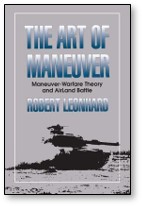
The Art of Manoeuvre: Manoeuvre Warfare Theory and Airland Battle by Robert Leonhard
The Art of Manoeuvre shows how true manoeuvre-warfare theory has been applied in campaigns throughout history. The author shows how our obsession with fighting and winning set-piece battles causes us to overlook an enemy’s true vulnerabilities. But as low-intensity conflicts promise to become the dominant warfare of the future, the importance of manoeuvre in attacking an enemy’s critical vulnerability will render attrition approaches to warfighting even more obsolete.
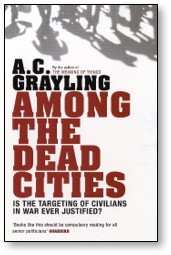
Among the Dead Cities: The History and Moral Legacy of the WWII Bombing of Civilians in Germany and Japan by A. C. Grayling
Is it ever right to target civilians in a time of war? Do the ends sometimes justify the means? The twentieth century- the age of 'total war'- marked the first time that civilian populations came to be seen as legitimate military targets. This is an issue that remains relevant today with the needs of the 'War on Terror' used to justify the use of drone strikes.
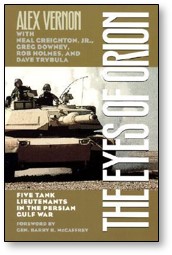
The Eyes of Orion: Five Tank Lieutenants in the Persian Gulf War by Alex Vernon
The Eyes of Orion is a highly personal account of the day-to-day experiences of five platoon leaders who served in the same tank battalion in the 24th Infantry Division during operations Desert Shield and Desert Storm. All in their twenties and just out of college (four are graduates of West Point and one received his commission through an ROTC program), these junior leaders served on the front line- facing physical, personal, moral and leadership challenges.
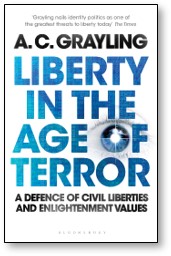
Liberty in the Age of Terror: A Defence of Civil Liberties and Enlightenment Values by A. C. Grayling
Our societies are under attack from the threat of terrorism, but also from our governments' attempts to fight that threat by reducing freedom in our own societies. To defend 'freedom and democracy', Western governments diminish freedom and democracy in their own country. By this logic, someone will eventually have to invade the US and UK to restore freedom and democracy to them.

Hagakure: The Book of the Samurai by Yamamoto Tsunetomo
A practical and spiritual guide for a warrior, drawn from a collection of commentaries in 1709-1716 by the clerk Yamamoto Tsunetomo. The book records Tsunetomo’s views on Bushido, the warrior code of the samurai. Written during a time when there was no officially sanctioned samurai fighting, the book grapples with the dilemma of maintaining a warrior class in the absence of war and reflects the author's nostalgia for a world that had disappeared before he was born.
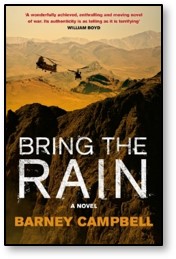
Bring the Rain by Barney Campbell
Drawing on firsthand experience of combat, Chamberlain describes discovering who he is and what he is capable of during the surreal violence and exhilaration of the Afghanistan war. A raw portrayal of modern junior leadership similar to Matterhorn by Karl Marlantes.
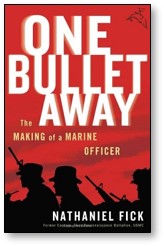
One Bullet Away: The Making of a Marine Officer by Nathaniel Fick
In this deeply thoughtful account of what it’s like to fight on today’s front lines, Fick reveals the crushing pressure on young leaders in combat. Split-second decisions might have national consequences or immediate and horrible repercussions, but hesitation isn’t an option. One Bullet Away never shrinks from blunt truths, but ultimately it is an inspiring account of mastering the art of war.
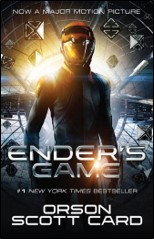
Ender’s Game by Orson Card
In preparation for a third invasion of an insectoid alien species, children are trained from a very young age by putting them through increasingly difficult games where their tactical genius is revealed. The book explores the violence and cruelty of children, the role of empathy in war, and the balance of individual dignity and the social good.
Additional Reading: Ender's Game and Philosophy: Genocide Is Child's Play by D. E. Wittkower

The Narrow Road to the Deep North by Richard Flanagan
Writes Nick Alexander: Set across a period of approximately 50 years The Narrow Road follows the life of a doctor, Dorrigo Evans, pre-WW2, through imprisonment on the Thai-Burma Railway, to his return home and rise to fame as a war hero and champion for veteran causes. A thought provoking mind bender of good people doing bad things, bad people doing worse and that messy grey zone that demonstrates morality’s frailty, and society’s influence on the human condition. The book explores character as a central tenet of leadership and teaches that sometimes leading is about becoming the person others need you to be.

The Unforgiving Minute: A Soldier's Education by Craig M. Mullaney
Mullaney’s education- the four years he spent at West Point, the test of Ranger School and his experience as a Rhodes Scholar at Oxford- didn’t prepare him for the hard lessons that only war can teach when one of his soldiers was killed by the enemy in Afghanistan.
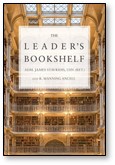
The Leader's Bookshelf by James G. Stavridis and R. Manning Ancell
After interviewing over two hundred active and retired four-star military officers about their reading habits and favourite books, asking each for a list of titles that strongly influenced their leadership skills and provided them with special insights that helped them to succeed, the top fifty books are listed and summarised. The essays that open and close the book and the model for reflective reading are exceptional.

Turn the Ship Around!: A True Story of Turning Followers into Leaders by L. David Marquet
The USS Santa Fe was the worst performing nuclear submarine in the U.S. fleet and was near being decommissioned due to poor performance. Marquet was appointed Captain and turned the situation around. He resisted Navy’s practice of incredibly centralised command and, rather than giving orders, would only approve or deny his subordinate’s proposals. It teaches a leadership culture which trusts and empowers subordinates to build leaders around us and produce enduring excellence. The book redefines what can be achieved when leaders empower the team.

Thirteen Days: A Memoir of the Cuban Missile Crisis by Robert F. Kennedy
A behind-the-scenes account of the thirteen days in October 1962 when the United States confronted the Soviet Union over its installation of missiles in Cuba. He describes each of the participants during the sometimes hour-to-hour negotiations, with particular attention to the actions and views of his brother President John F. Kennedy.
Perspective: Strategic Leadership
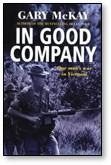
In Good Company by Gary McKay
This account of a rifle platoon in the Vietnam War describes the fears and the camaraderie which soldiers experience in combat. An Australian, McKay writes about his experience leading his platoon. The detail is provided from the 80 letters he wrote to his wife while he served. It offers excellent insights into the challenges faced by junior officers fresh out of training in Vietnam.
Perspective: tactical leadership.
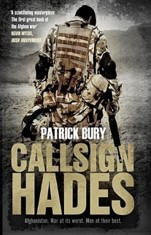
Callsign Hades by Patrick Bury
A powerful and moving account of a 28-year-old British Army Captain's experiences fighting alongside the Paras in Helmand Province. It examines how junior leaders command, manage and lead more experienced teams, and how those teams ‘get back up’ after missteps. It highlights the humility and honesty of these leaders in a contemporary, relatable conflict.

Black Hearts: One Platoon's Descent Into Madness in Iraq's Triangle of Death by Jim Frederick
Deployed in late 2005 to Iraq’s so-called ‘Triangle of Death’, the fabled 502nd Infantry Regiment descended into a tailspin of poor discipline, substance abuse, and brutality over their year-long tour of duty. A small group of soldiers perpetrated one of the most heinous war crimes of the Iraq War and Fredericks unpacks the chronic breakdown in leadership which enabled this. This is the situation that develops when leaders don’t do their jobs.
Perspective: tactical leadership and failure.
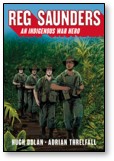
Reg Saunders: An Indigenous War Hero by Hugh Dolan and Adrian Threlfall
An inspirational graphic novel about Reg Saunders MBE who not only survived World War II battlefields in the Middle East, North Africa, Greece, Crete, and New Guinea, but excelled as a military leader. He was recommended for officer training and, in 1944, returned to New Guinea as a platoon commander—the first Aboriginal Australian to serve as a commissioned officer.
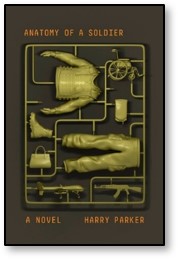
Anatomy of a Soldier by Harry Parker
Writes Nick Alexander: This book assists leaders in understanding the requirement for empathy when supporting soldiers in transitioning out of our organisation for medical reasons rather than on their own terms. The reader is able to really consider the central themes: loss, shame, fear of failure, overcoming adversity, mateship, the power of humour and leadership to name just a few.
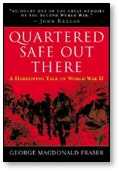
Quartered Safe Out Here: A Harrowing Tale of World War II by George MacDonald Fraser
From the author of the Flashman novels, this is the soldier’s version of Defeat Into Victory. It offers almost unrivalled insight into war from a Private soldier’s perspective. Fraser was only 19 when he arrived in Burma during World War II and he offers a first-hand glimpse at the camaraderie, danger, and satisfactions of service.
Philosophy and Ethics
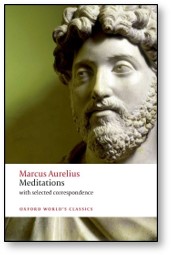
Meditations by Marcus Aurelius
Meditations is perhaps the most important source of our modern understanding of Stoic philosophy. Its twelve books chronicle different stages of Marcus Aurelius’ life and ideas. Although he ruled during the Pax Romana, an age of relative peace and stability throughout the empire, his reign was marked by near-constant military conflict and a devastating plague which killed upwards of five million people. Contains valuable insights on topics such as resilience, moderation and emotional control.

Letters from a Stoic by Seneca the Younger
This selection of Seneca's letters shows him upholding the austere ethical ideals of Stoicism: the wisdom of the self-possessed person immune to overmastering emotions and life’s setbacks, while valuing friendship, and the courage of ordinary men, and criticising the harsh treatment of slaves and the cruelties in the gladiatorial arena.
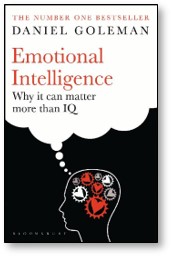
Emotional Intelligence: Why It Can Matter More Than IQ by Daniel Goleman
Daniel Goleman argues that our view of human intelligence is far too narrow, and that our emotions play a major role in thought, decision making and individual success. Self-awareness, impulse control, persistence, motivation, empathy and social deftness are all qualities that mark people who excel.
Additional reading: Working with Emotional Intelligence by Daniel Goleman

What We Owe to Each Other by T.M. Scanlon
How do we judge whether an action is morally right or wrong? If an action is wrong, what reason does that give us not to do it? Why should we give such reasons priority over our other concerns and values? In this book, T. M. Scanlon offers new answers to these questions, as they apply to the central part of morality that concerns what we owe to each other.
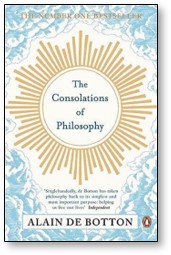
Ethics: An Essay on the Understanding of Evil by Alain Badiou
Badiou shows how our prevailing ethical principles serve ultimately to reinforce an ideology of the status quo, and fail to provide a framework for an effective understanding of the concept of evil.
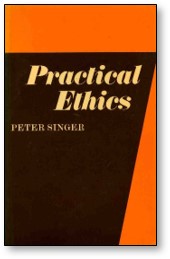
Practical Ethics by Peter Singer
A classic introduction to applied ethics. Some of the questions discussed in this book concern our daily lives. Is it ethical to buy luxuries when others do not have enough to eat? Should we buy meat from intensively reared animals? Other questions confront us as concerned citizens: equality and discrimination on the grounds of race or sex; abortion; political violence and terrorism; and the preservation of our planet's environment
Additional reading: Ethics in the Real World by Peter Singer
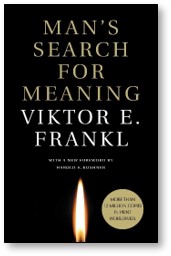
Man’s Search for Meaning by Viktor Frankl
An account of his time in the Nazi concentration camps, Frankl’s explores the will to find meaning in spite of the worst adversity. At the heart of Frankl’s theory of logotherapy (from the Greek word for ‘meaning’) is a conviction that the primary human drive is not pleasure, as Freud maintained, but rather the discovery and pursuit of what the individual finds meaningful.

The Consolations of Philosophy by Alain De Botton
Alain de Botton leverages six of the finest minds in the history of philosophy to work on the problems of everyday life: Socrates, Epicurus, Seneca, Montaigne, Schopenhauer and Nietsche applied to some of the things that bother us all: lack of money, the pain of love, inadequacy, anxiety; the fear of failure and the pressure to conform.
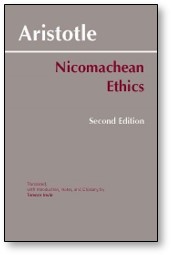
Nicomachean Ethics by Aristotle
Nicomachean Ethics addresses the question of how to live well, and lays out cultivating a virtuous character as the basis of Aristotle’s ethical system. Aristotle sets out to examine the nature of happiness, discusses the nature of practical reasoning, the value and the objects of pleasure, the different forms of friendship, and the relationship between individual virtue, society and the State.
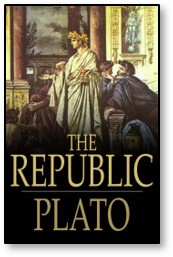
The Republic by Plato
An enquiry into the notion of a perfect community and the ideal individual within it. What is goodness? What is reality? What is knowledge? The Republic also addresses the purpose of education and the role of both women and men as 'guardians' of the people. Plato arrives at a depiction of a state bound by harmony and ruled by 'philosopher kings'.

Utilitarianism by John Stuart Mill
One of the most important nineteenth-century schools of thought, utilitarianism says that the value or rightness of an action rests in how well it promotes the welfare of those affected by it, aiming for 'the greatest happiness of the greatest number'.

Justice: What's the Right Thing to Do? by Michael J. Sandel
Think through the complicated issues and controversies we face in public life today: affirmative action, same-sex marriage, physician-assisted suicide, abortion, national service, the moral limits of markets. Sandel relates the big questions of political philosophy to the most vexing issues of the day, and shows how a grasp of philosophy can help us make sense of politics, morality, and our own convictions.
Additional Books
While many of these are not typical leadership doctrine, we think that is what makes them valuable. They reference some of the issues of our time, rather than being heavy on leadership theory, but we think it’s essential to contextualise Army’s view of leadership to make sure it is relevant and keeps up with society.
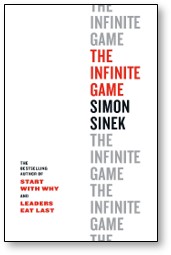
The Infinite Game by Simon Sinek
There are two types of games, finite games where resources are limited and the aim is to win, and infinite games where the aim is to keep the game going. Simon Sinek outlines how these games play out and impact business and leadership.
Intro: https://youtu.be/3vX2iVIJMFQ
Additional reading: Finite and Infinite Games by James Carse
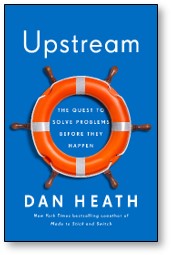
Upstream: The Quest to Solve Problems Before They Happen by Dan Heath
Why do our efforts skew so heavily towards reaction rather than prevention? We all have a tendency to work around problems. We are resourceful. We improvise. We’re so accustomed to managing emergencies as they strike that we often don’t stop to think about how we could prevent crises before they happen.
Intro: https://youtu.be/Wp_cd11TD_w
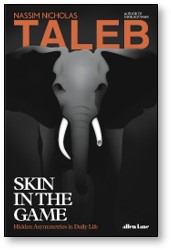
Skin in the Game: The Hidden Asymmetries in Daily Life by Nassim Taleb
Taleb argues for social justice, a focus on symmetry and risk sharing. You cannot make profits and transfer the risks to others, as bankers and large corporations do... forcing skin in the game corrects this asymmetry better than thousands of laws and regulations.
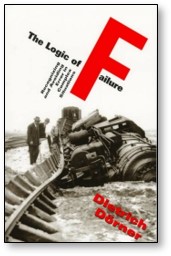
The Logic of Failure: Recognising and Avoiding Error in Complex Situations by Dietrich Dörner
Dörner identifies what he calls the ‘logic of failure’—certain tendencies in our patterns of thought that, while appropriate to an older, simpler world, prove disastrous for the complex world we live in now. The Logic of Failure is a compass for intelligent planning and decision-making that can sharpen the skills of managers, policymakers and everyone involved in the daily challenge of getting from point A to point B.
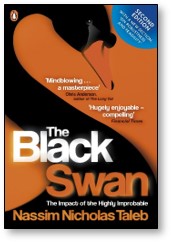
The Black Swan: The Impact of the Highly Improbable by Nassim Taleb
A mathematician and professor at New York University, Taleb’s book focuses on understanding uncertainty and variance in financial markets without being overly technical (indeed, he deliberately writes so that the ‘non-technical reader’ can skip technical chapters). The central idea is not to attempt to predict Black Swan events, but instead build robustness to negative events and an ability to exploit positive events.
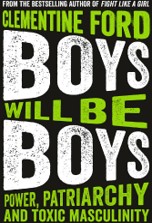
Boys Will be Boys: Power, Patriarchy and the Toxic Bonds of Mateship by Clementine Ford
With equal parts passion and humour, Ford reveals how patriarchal society is as destructive for men as it is for women, creating a dangerously limited idea of what it is to be a man. She traces the way gender norms creep into the home from early childhood, through popular culture or the division of housework and shines a light on what needs to change for equality to become a reality.
Additional Reading: Fight Like a Girl by Clementine Ford
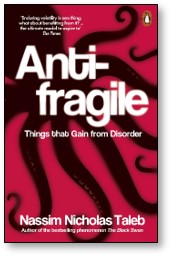
Anti-Fragile: Things That Gain from Disorder by Nassim Taleb
Some things benefit from shocks; they thrive and grow when exposed to volatility, randomness, disorder and stressors, and love adventure, risk, and uncertainty. Yet, in spite of the ubiquity of the phenomenon, there is no word for the exact opposite of fragile. Taleb calls it antifragile. Antifragility is beyond resilience or robustness. The resilient resists shocks and stays the same; the antifragile gets better.
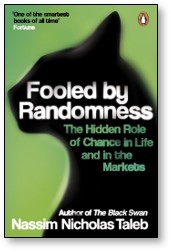
Fooled by Randomness: The Hidden Role of Chance in Life and in the Markets by Nassim Taleb
People are often unaware of the existence of randomness and tend to explain random outcomes as non-random. People overestimate causality, attempt to make the world more explainable than it is, and misperceive survivorship bias when analysing information and making decisions.
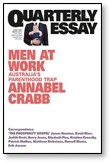
Men at Work: Australia’s Parenthood Trap (Quarterly Essay #75) by Annabel Crabb
Analyses parental obligations in the Australian workplace, describes the benefits of flexible workplaces and how to make them succeed. A good leader understands how their team’s lives and work will change with parenthood.
"As long as you're pushing men to stay at work, you're pushing women to stay at home."

See What You Made Me Do: Power, Control and Domestic Violence by Jess Hill
Women are abused or killed by their partners at astonishing rates: in Australia, almost one in six women over the age of fifteen have been abused by an intimate partner. This book is well-researched, transfixing and will make you a better leader by heightening your understanding of the flawed logic of victim-blaming. What do you know about perpetrators? Why is it so hard for victims to leave? What would successful intervention in your team look like?
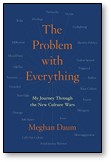
The Problem with Everything: My Journey Through the New Culture Wars by Meghan Daum
Gives leaders a new lens through which to view the younger generations. It’s a way to access topics such as feminism and general resistance in a practical way, to enable leaders to be informed and compassionate about the issues that are central to much of youth culture.





